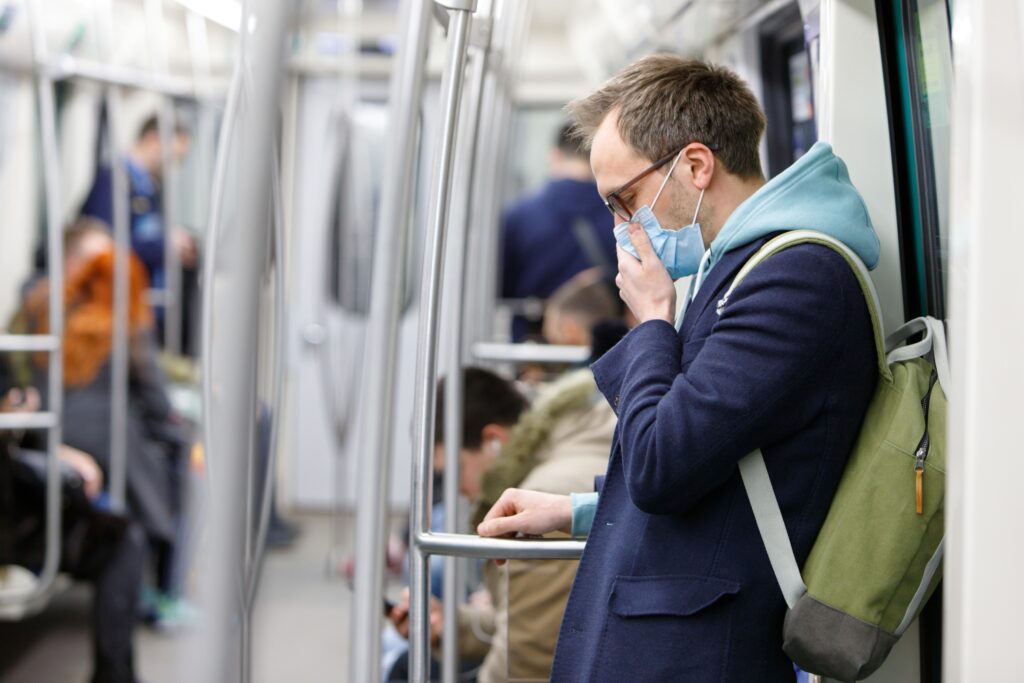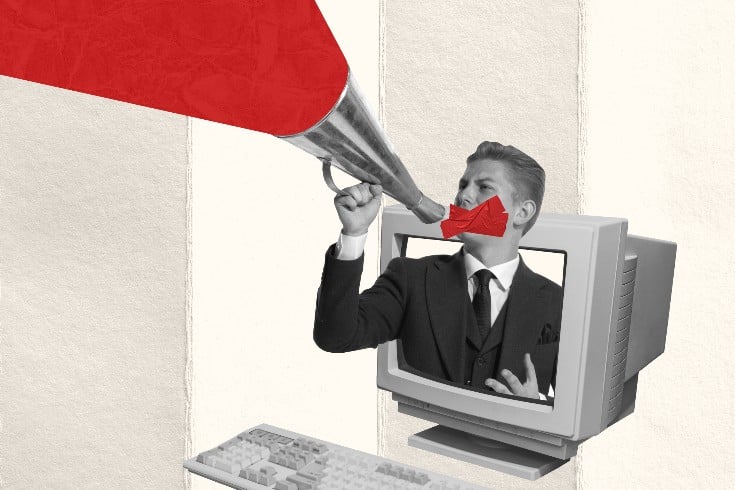Removal of False Information Related to the New Coronavirus and Measures Against Reputational Damage

The so-called novel coronavirus is having a significant impact on domestic sales in industries such as dining, beauty salons, gyms, hotels, and more. The decline in sales due to self-restraint from going out is a serious problem with no end in sight.
In addition to this, the spread of false information related to the novel coronavirus on the internet is also becoming a problem. For example, for companies that run food and beverage businesses or store-based businesses,
An outbreak of the novel coronavirus occurred at the ○○ store of ●●
The staff at the ○○ store of ●● were infected with the novel coronavirus
When such false information is spread, the negative effects cannot be ignored.
If such false information is not addressed at an early stage, it can spread on social media and other platforms, posing a risk of being viewed by a significant number of people.
This article explains the measures that can be taken against posts and articles that fall under such internet rumors.
※After this article was published, on April 10, 2020 (Heisei 32), an actual arrest was made for such posts under the crime of business obstruction. The article below takes this fact into account.
Related article: Hoaxes such as “Corona at ● store” on internet bulletin boards and the crime of business obstruction[ja]
The Relationship Between Terms of Use Violations and Illegality
In particular, under the current social circumstances, posts or articles that fall under the category of disinformation related to the novel coronavirus can be said to be highly malicious. However, when such disinformation is posted on the Internet, in order to request the removal of the post or to identify the poster, it is generally necessary to assert one of the following:
- The post violates the terms of use of the site
- The post is “illegal”
As for the relationship between these two, it is as follows:
- Violation of Terms of Use: This can be used when requesting removal directly from the site operator without going through the courts. However, it cannot be used when seeking to identify the poster.
- Illegality: This can be used for removal outside of court, as well as for removal and identification of the poster through the courts.
The terms of use are set by the site operator themselves, and if you request the operator to remove a post because it violates the terms, there is a possibility that it will be removed at their discretion. However, it may be a bit confusing, but the only point of interest for the courts is whether it is “illegal” or not. In proceedings through the courts, you cannot argue that “this post violates the terms of use and should be removed, but it is not removed even when requested outside of court, so I want the court to issue a judgment (decision) for removal”. Also, in order to identify the poster, it is necessary to go through the courts, and similarly, the argument of “violation of terms of use” cannot be used.
Furthermore, while it is often thought that a lawyer should be consulted to establish the claim of “illegality” and gather evidence, in the case of a violation of the terms of use, it is often sufficient to argue that “this post violates these terms”, and there are many cases where an application can be made internally without consulting a lawyer.
Removal of Defamation Based on Violation of Terms of Use

Tabelog’s Terms of Use Prohibit Posts with ‘Difficult to Verify Content’
Depending on the site, posts that may not be deemed ‘illegal’ can still be prohibited under the terms of use. For example, Tabelog (a Japanese restaurant review site) states:
2: Posts about events that are harmful to the restaurant and difficult to verify are prohibited
Example) Eating the meat here always gives me a stomachache
Example) They use chemical seasonings (making assumptions about the restaurant’s cooking methods or ingredients)
Guidelines have been set up to request modifications or removals of such posts based on Tabelog’s judgement. Defamation like the examples above could fall under this category, and there may be room to request removal. For more details on removal from Tabelog, please refer to the article below.
Related article: Requesting the Removal of Reviews that Violate Tabelog’s Guidelines[ja]
Removal Can Be Difficult When Terms of Use Are Abstract
However, for general sites other than restaurant review sites, it can be difficult to say which clause of the terms of use posts or articles that constitute defamation like this case violate. For example, Twitter prohibits:
- Harassment
- Intense physical threats that endanger physical safety or health
However,
- Does defamation related to the new coronavirus fall under this category?
- Even if the victim knows that such defamation is indeed ‘defamation’, how can they make Twitter understand this and prompt action during out-of-court negotiations?
These are difficult issues.
Related article: What is the Method to Remove Negative Tweets from Twitter?[ja]
The Limitations of Twitter’s Efforts to Remove False Information
Twitter announced in its “Progress Report on Strategies during the COVID-19 Pandemic” dated March 23, that it would be removing false information related to the novel coronavirus. However, the types of tweets that are being targeted for removal include the following examples:

In summary, Twitter has only announced its intention to “expand the definition of ‘harm’ on Twitter to respond to content that directly contradicts guidance on public health from international or national authorities,” and to remove “false information that is harmful to society or the public.” As of the time of writing this article, it is believed that there has been no announcement to proactively remove false information that is harmful to individual companies or individuals and poses a risk to their business.
Removal of Defamation Based on the Claim of Illegality
In cases where removal due to a violation of terms of use is difficult, it is necessary to assert and prove that the post is “illegal”. Although it may seem obvious at first glance that malicious defamation is “illegal”, it is necessary to first consider the specific logic that can be used to declare it “illegal”.
Removal of Defamation Based on Damage to Reputation (Infringement of Right to Reputation)
For instance, posts or articles that spread rumors such as “the store clerk was infected with the new coronavirus” can be said to give the impression to those who see the post that they will be infected with the new coronavirus if they use the store. In the past, there have been cases where posts on anonymous bulletin board sites claiming that eating at a certain restaurant caused symptoms of diarrhea were judged as follows:
The article in question (omitted) is recognized as targeting the restaurant in question (omitted). From this, it can be interpreted that the article (omitted) indicates the fact that the person had symptoms of diarrhea after eating “▽▽”, or the oden served at the restaurant in question. Therefore, the article (omitted) can be said to give the impression that food that could cause food poisoning is being served at the restaurant in question, and it can be recognized that it lowers the social evaluation of the plaintiff (omitted) who runs the restaurant in question. (omitted) The plaintiff (omitted) has stated that the facts indicated in the article (omitted) are not true, and since there is no particular evidence to the contrary, these facts can all be recognized as not true.
Tokyo District Court, February 5, 2016 (Heisei 28)
As such, there are precedents where the post was judged to give the impression that the store in question serves food that could cause food poisoning, and was deemed to be defamation (infringement of the right to reputation) and illegal.
Requirements for Defamation (Infringement of Honor) to be Established

Generally speaking, defamation (infringement of honor) is established when:
- The post in question describes specific facts (on the other hand, abstract impressions such as “the food served in the restaurant is not tasty” do not constitute defamation)
- The post lowers (negatively affects) the reputation of your company
- And, it contradicts the truth
These are the conditions for defamation to be established. We explain the requirements for defamation in detail in the following article.
Related article: What are the conditions for suing for defamation? Explaining the recognized requirements and the average compensation[ja]
Comparing the above with the terms of use of Tabelog, we have:
- Tabelog’s Terms of Use: Posts that have a negative impact are subject to deletion if the content is difficult to verify
- Defamation (Infringement of Honor): Posts that have a negative impact are illegal (subject to deletion) if the content contradicts the truth
This means that proof based on the claim that “it is not true” and the evidence to support it is necessary. Although the hurdle is a bit high, it can be said that there is a possibility that posts that can be interpreted as having a high risk of infection with the new coronavirus when using the store in question can be claimed to be “defamation (infringement of honor) and illegal”.
Removal of Defamation due to Infringement of Business Rights and Right to Conduct Business
Furthermore, posts and articles that fall under the category of defamation related to the novel coronavirus, as mentioned from the beginning, can have a significant negative impact on the business operations of companies running store businesses, etc. It is also conceivable to claim an infringement of so-called business rights and the right to conduct business.
However, in practical terms, rights such as business rights and the right to conduct business are often claimed in conjunction with the right to honor, and courts often
- Recognize both defamation (infringement of the right to honor) and infringement of business rights and the right to conduct business in cases where defamation is recognized
- Do not recognize either defamation (infringement of the right to honor) or infringement of business rights and the right to conduct business in cases where defamation is not recognized
It can be said that there are many cases where such judgments are made. After all, defamation (infringement of the right to honor) can only be established in cases where “the post is not true”, as mentioned above. In relation to defamation related to the novel coronavirus,
- Untrue defamation is defamation, and under the current social circumstances, it can have a significant negative impact on business operations, resulting in infringement of business rights and the right to conduct business
- If it is true, it is not defamation, and under the current social circumstances, it is inevitable that correct warning information will have a negative impact on business operations, so it cannot be said to be an infringement of business rights and the right to conduct business
There is a possibility that such a judgment will be made.
Court Cases Recognizing Business Interference Due to Defamatory Posts
For instance, in past court cases, posts about a company that builds custom homes, such as “I was deceived by a fraudster and it ended up being the worst outcome.” “It’s a common story that fraudsters are kind until the contract is signed, then turn into demons after the signing.” “In such a company, construction delays are a given, and they’ll probably feign ignorance about defects, so you’d better be prepared to fight.” were considered.
The plaintiff is a registered construction company of the SE construction method, which is known for its excellent earthquake resistance, and has been selected for heavy timber frame houses… On an internet bulletin board site about housing companies, it sometimes receives high ratings… The plaintiff’s representative denies fraudulent behavior during contract negotiations with customers and conducts inspections and after-maintenance of the building after construction… There are no circumstances suggesting that the facts indicated in this article are true…
Tokyo District Court, July 6, 2015 (Heisei 27)
The court recognized the claim of defamation, and at the same time,
Furthermore, after the posting of this article, the plaintiff received a series of inquiries related to this article… The posting of this article lowers the plaintiff’s social evaluation and damages its credibility, and it can be said that it is clear that it infringes on the plaintiff’s… business rights.
Tokyo District Court, July 6, 2015 (Heisei 27)
There are court cases that also recognize business interference.
Of course, depending on the specific content of the post, it may be difficult to call it defamation, but it could be said to infringe on business rights or the right to carry out business. However, such cases are thought to be exceptional.
Removal of Defamation and Identification of Posters through the Courts

If you can argue that a post is illegal based on these claims, you can request the removal of the article through a swift procedure called a “provisional disposition” in court. Similarly, you can also request the disclosure of sender information and the identification of the poster through provisional disposition procedures. In such cases, it is common to proceed with removal and identification of the poster in the following flow:
- First, request removal through out-of-court negotiations
- If out-of-court negotiations fail, request removal by provisional disposition and simultaneously request disclosure of the poster’s IP address
- Based on the disclosed IP address, request the disclosure of the poster’s name and address in a lawsuit
- Make a claim for damages against the identified poster
Of course, if you do not wish to identify the poster, the request in step 2 will be for removal only, and step 3 will be unnecessary. We provide a detailed explanation of this process and an estimate of attorney fees in the article below.
Related article: Request to Remove Violations of Guidelines and Reviews on Tabelog[ja]
Summary
It is crucial to respond as quickly as possible to posts or articles that spread false information related to the novel coronavirus. To do this effectively, it is necessary to:
- Thoroughly examine the ‘false information’ currently present on the internet and take steps to eradicate it by deleting such posts.
- In particularly malicious cases, identify the source of the information and work towards identifying the poster of the false information.
These initial steps are challenging without the expertise of a lawyer who is knowledgeable in managing online reputational damage. For instance, in the case of the latter, posts on the anonymous bulletin board 5channel (formerly 2channel) are automatically copied to 2channel (2ch.sc), and also reproduced on so-called copy sites and summary sites. In such situations, in order to eradicate the false information, it is necessary to delete posts from all these sites. Moreover, without being able to identify which site’s post is the original and the source of the false information, it is impossible to identify the poster.
Related article: Deletion of 2channel, 5channel, Copy Sites, and Summary Sites[ja]
Our firm, considering the current social situation, is committed to responding as quickly as possible to false information related to the novel coronavirus on behalf of our clients.
Category: Internet





















